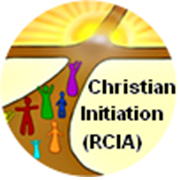Newsletter, October 9, 2020

- Have you been worshiping with us, but never officially took the step to become Catholic?
- Have you been away from the church and have now returned, but want to know more?
- Have you been a Catholic all your life, but never celebrated all the Sacraments of Initiation (Baptism, Confirmation, Eucharist?)
- Have you joined us from a different background and would now like to find out more about the Catholic Church?
If any of the above questions apply to you, we would love to help you in your journey. Or, if you know of anyone who could answer YES to any of the above questions, perhaps you could extend an invitation to them!
In recent years, there has been a great increase in the number of adults who are joining the Catholic Church. RCIA is a program designed to help non-Catholics and non-practicing Catholics learn more about the Catholic faith through a series of virtual discussions and prayer time. This program helps people grow in faith and knowledge of God, and develop a deeper relationship with God as they consider becoming Catholic.
If you are not yet sure whether you want to become Catholic, you are still welcome to participate as you make your decision. There is no obligation to join the Catholic Church and regardless of your decision you are always welcome here at St. Mary-St. Catherine of Siena Parish.
Please contact Sr. Nancy Citro, SND at (617) 242 -4664 or ncitro@stmarystcatherine.org. for more information
September 25, 2020
CARDINAL SEÁN O’MALLEY STATEMENT
ON MASSACHUSETTS ROE ACT LEGISLATION
Our country and our Commonwealth are faced these days with multiple issues that are both empirically complex and profoundly moral in their content and consequences. These issues include the COVID-19 pandemic, racial justice, climate change, poverty and inequality. The Catholic Church, in its teaching and social ministries, is engaged with many other organizations in addressing these questions, and we will continue to do so.
In this statement, however, I wish once again, as I have done in the past year, to raise up for attention a uniquely significant moral question: the issue of abortion. It is uniquely significant because it always involves the right to life, the fundamental human right, which is the foundation of the other spiritual and material rights that comprise the common good of our society. Abortion always terminates a human life.
The right to life of the unborn is deeply threatened by legislation presently being considered in the Massachusetts legislature. The ROE Act is now being debated in the Joint Committee on the Judiciary. Advocates for this bill describe its purpose as protecting the status and legacy of the Roe v. Wade decision of the U.S. Supreme Court in 1973. As a matter of law, Massachusetts already has among the most extreme abortion laws in the county, and if Roe v. Wade were overturned, abortion rights in Massachusetts would be unaffected. Here in Massachusetts, the proponents of the ROE Act describe its objective as increasing access to abortion. Tragically, the bill would do this but in a very extreme manner.
Specifically, the ROE Act would do the following; it would:
- Allow abortion in Massachusetts during all nine months of pregnancy;
- Eliminate any requirement that even late-term abortions be performed in hospitals;
- Eliminate the requirement to make efforts to care for a child who survives an attempted abortion;
- Eliminate any requirement that a pregnant minor (under 18) have any adult consent (parental or through the courts) before undergoing an abortion.
The proposed legislation can reasonably be described as radical in its nature and destructive in its consequences. It is being pressed forward as if it were necessary in a state with some of the most expansive abortion laws in the country. By any rational measure, the specifics of the Act cited above are extreme measures in a state already known as widely pro-choice. I regret that fact, but it is a fact.
For almost 50 years, abortion has divided this nation morally, legally and politically. Again, I regret these divisions, but it is not possible to remain silent as this legislation is being pressed upon this Commonwealth. Opposition to the Act is required on moral grounds, indeed on basic human rights grounds.
Our opposition to the ROE Act is not designed to condemn, shame or single out individuals. The complex conditions which often bring women to undergo an abortion should be acknowledged and recognized. In the face of these situations, the appropriate attitude should be compassion and care. In the Archdiocese, we attempt to offer both through Pregnancy Health and the Project Rachel program. Our deepest concern is to provide help and support to women.
The Church must oppose the ROE Act, and I invite others to consider why we do so. We will publicize our objections in the parishes of the Archdiocese, seeking the support of members of our community. We will continue to explain our views to legislators and urge citizens to express their opposition to their representatives and senators. We will dialogue with our neighbors who may differ with the Church’s position and will do so with care and civility. In the end, we are simply committed to protecting human life in its most vulnerable condition.
